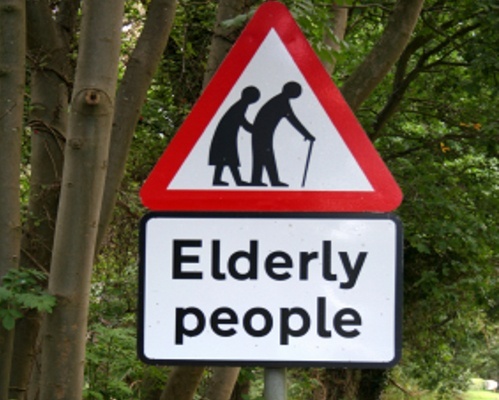
Old age can be very challenging, or rather miserable, when there is no financial support from any source. Taking this into account, some of the finance companies have introduced the Reverse Mortgage scheme in India. This scheme originated in the United States and has gained popularity in the West since its inception. Reverse mortgage, as the name implies, is a kind of loan through which you get cash flow serially in return for pledging a property; primary target consumers being the senior citizens.
In this scheme, there is a reverse in the payment stream whereas in a normal mortgage, the borrowed or principal amount is paid back by the borrower in monthly instalments (EMIs or Equated Monthly Instalments) over a period of time. In other words, a senior citizen generally above the age of 60 can pledge his house with a bank or housing finance company (HFC) and get a regular income – be it periodic payments, line of credit or lump sum payment, entirely the borrower’s choice.
One of the main advantages of this scheme is that the borrower along with the spouse can continue to live in the house mortgaged for the rest of their lives. The amount received through this scheme is considered as loan and hence there is no tax liability. After the death of the borrower or if he/she moves from the house, the bank or the HFC recovers the amount by selling off the house and the extra amount, if any, will be passed on to the borrower’s heirs. Or if the heirs would want to reclaim the property, they could pay off the reverse mortgage with accumulated interest. A few companies providing the Reverse Mortgage scheme in India are State Bank of India, Dewan Housing Finance Limited, Punjab National Bank and Union Bank of India.
The eligibility criteria set by the Reserve Bank of India (RBI) states that the person should be above 60 years of age and own a home to avail this mortgage. There is no need of any other income or other medical requirements. A revaluation of the property will be undertaken once every five years by the bank or HFC. The loan amount is set up to 60% of the property value.
Reports state that in the United States, the year 2008 topped with 112,000 Home Equity Conversion Mortgages (HECM) loans. Apparently, in 2011, owing to the financial crisis, the loans were at over 73,000 which had originated through the HECM program and figures indicate that the loans have decreased at the rate of 35% since 2008. The volume of the loans is expected to rise in future since senior citizens are to form a larger part of the population by 2025.
In India, this scheme had been introduced in 2007 but did not take off at the expected rate. Surprisingly, the number of Reverse Mortgage Loans availed in 2008 was just 150 out of a population of 80 million senior citizens in the country! It is probable that most of the senior citizens are hesitant in availing this facility. One of the prime reasons could be that they consider it painful to mortgage a house that has sentimental value for them, built with their meticulously saved funds intended as their contribution for their children. Another reason could be the inadequate awareness spread about this product. Few drawbacks of this scheme are the maximum available amount which has been set at Rs.50 lakhs, and the period of the mortgage, which currently limits it to 20 years. Instead of capping the loan amount to Rs.50 lakhs, amount should be an equitable percentage of the value of the property mortgaged.
In late 2010, a new product called Reverse Mortgage Loan Enabled Annuity (RMLEA) plan had been launched as a result of a tie-up between Star Union Dai-ichi Life Insurance Co. Ltd. and the Union Bank of India (UBI), which is a combination of Reverse Mortgage loan and Life Annuity. Under this plan, UBI will provide RMLEA to its senior citizen customers on their property. UBI purchases Life Annuity from SUD Life with the loan amount, which in turn will be disbursed by UBI periodically. One of the added benefits of this scheme is that the spouse also receives a monthly income or the amount after the annuitant’s death. This product is planned for re-launch by Life Insurance Corporation of India (LIC) along with the Corporation Bank.
However, it is expected that this new Reverse Mortgage scheme will gain more popularity with increased awareness created and taking into account the increased need for cash flow during one’s old age in the current scenario of high inflation.